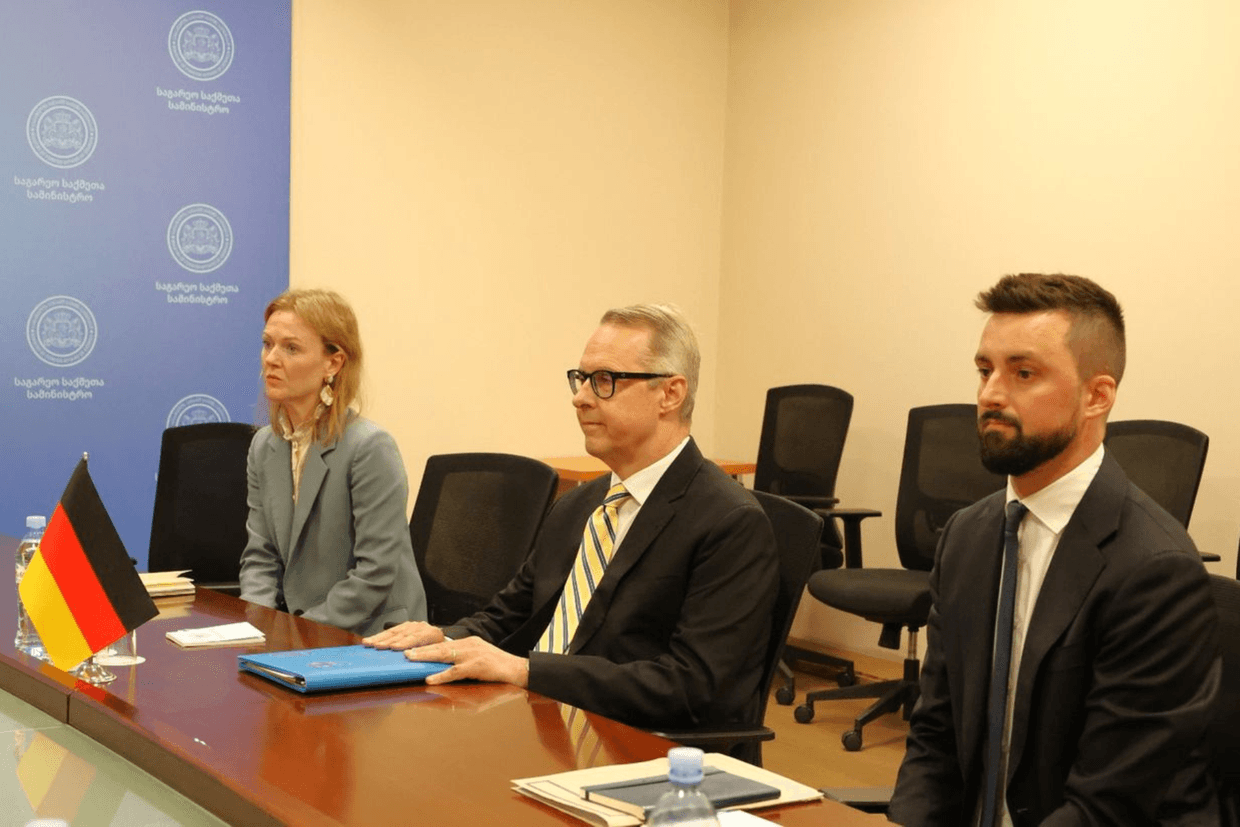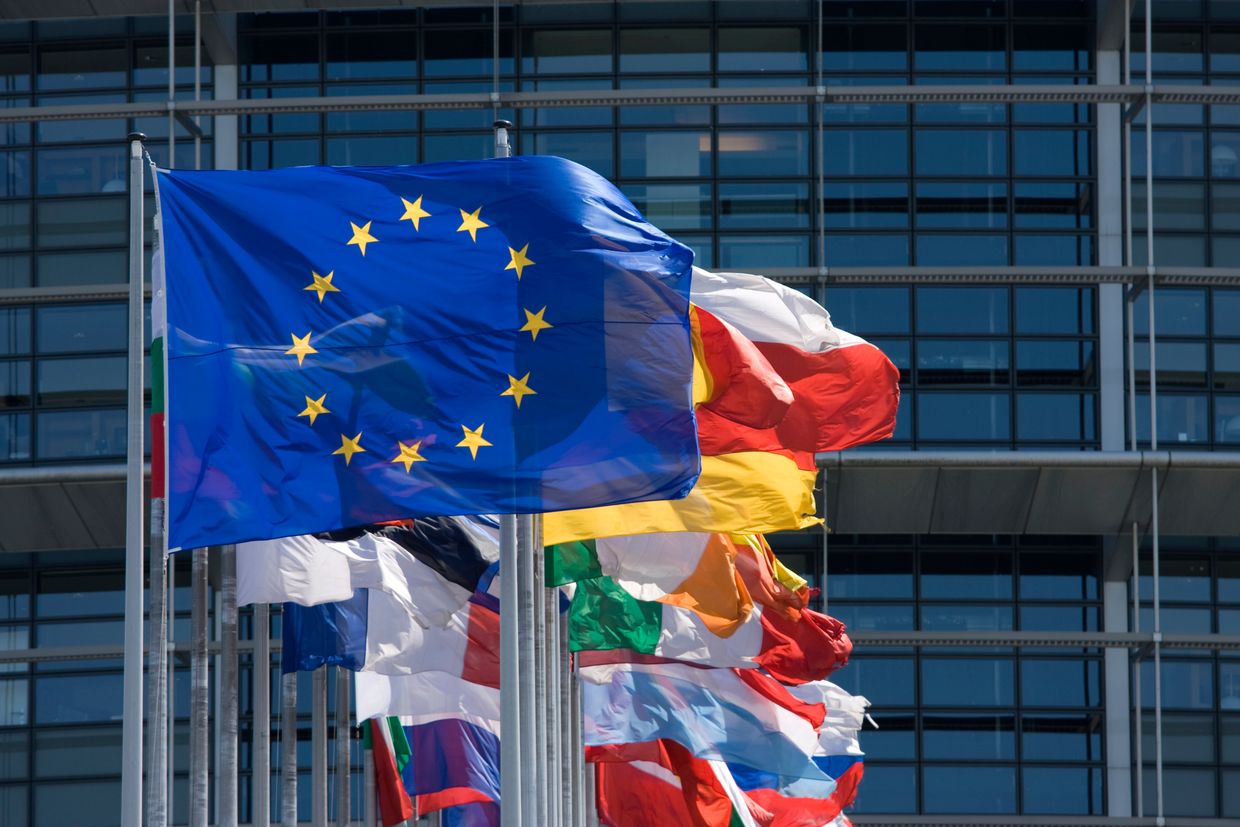
Editor’s Note: On Thursday morning, Georgia’s Foreign Ministry summoned UK Ambassador Gareth Ward. This piece will be updated once further information becomes available.
Georgia’s Foreign Ministry has summoned German Ambassador Peter Fischer over alleged interference in state affairs, including encouraging a ‘radical agenda’ in the country. The summon follows an ongoing escalation in negative rhetoric from the Georgian Dream government against Western ambassadors.
Following the summons, Fischer met with Georgia’s First Deputy Foreign Minister Giorgi Zurabishvili on Wednesday afternoon.
According to the ministry, Fischer was ‘reminded’ that, according to the 1961 Vienna Convention on Diplomatic Relations, diplomats ‘are obliged not to interfere in the internal affairs of the host state’.
Concerns were also expressed over what the ministry called ‘attempts to encourage a radical agenda in the country’, alleging such attempts were contributing to the ‘incitement of polarisation in society’.
‘Also of concern are the attempts to politicise ongoing court proceedings in the country and the participation of ambassadors in this process’, the ministry stated.
During the meeting, the ministry also raised the concerns expressed by the German Embassy regarding ‘the incitement of hate speech and the promotion of the spread of disinformation’.
The ministry claimed the German Embassy had been asked to provide specific justifications for these concerns, but had not done so, leading the Georgian side to consider the allegations to be ‘another attempt at a groundless attack against the government’.
‘The Georgian government, despite the targeted campaigns against it, attaches great importance to and is wary of relations and believes that such actions damage the partnership relations established over the years between the two countries. The Ministry of Foreign Affairs hopes that the activities of diplomatic representatives in the future will be based on the principles of cooperation between the countries based on mutual respect’, the ministry statement concluded.
We firmly reject the continuing aggressive rhetoric by representatives of the Georgian Dream towards the German Ambassador in Tblisi & his baseless summons today. He represents the position of the Federal Government & acts in full compliance with the Vienna Convention.
— GermanForeignOffice (@GermanyDiplo) September 24, 2025
Fischer has been at the centre of numerous attacks from Georgian Dream leaders over the last month.
Parliamentary Speaker Shalva Papuashvili in particular has repeatedly accused Fischer of supporting ‘extremist’ activists, including those he blamed for instigating violence outside of the Georgian Dream campaign headquarters in Tbilisi, where protesters had gathered to demonstrate against Mayor Kakha Kaladze, who is running for a third term. Several people were injured in the chaos as supporters of the ruling party attacked demonstrators.
Papuashvili and others have also repeatedly smeared Fischer for his connections to the Iliauni students movement, a protest group, to which Fischer spoke about the benefits that joining the EU would offer Georgia.
Following these attacks, Germany’s Foreign Ministry issued a statement rejecting Papuashvili’s ‘baseless accusations’ against Fischer.
‘We are worried that by spreading disinformation and divisive narratives he is actively undermining Germany–Georgia relations. We firmly reject the continuing aggressive rhetoric by representatives of the Georgian Dream [party] towards the German Ambassador’.

Another Western Ambassador featuring in Georgian Dream rhetoric has been Dutch Ambassador Meline Arakelian.
On 16 September, Prime Minister Irakli Kobakhidze claimed that a ‘large part of [EU] ambassadors present themselves to Georgian society as ambassadors of hatred’, specifically singling out Arakelian, who had met with the now-detained opposition politician Elene Khoshtaria before she was arrested for writing ‘Russian Dream’ on a Georgian Dream election banner.
‘This is a gross violation of the Vienna Convention, direct interference in democratic elections, and such behaviour is unbecoming of any ambassador’, Kobakhidze said of Arakelian.
The criticism was repeated by Papuashvili, who called Khoshtaria an ‘extremist politician’ on Tuesday, and accused Arakelian of ‘encourag[ing] extremism in Georgia’.
Following this, on Wednesday, the embassies of 26 European countries in Georgia, as well as the EU Embassy, issued a joint statement condemning ‘disinformation’ about their work in the country.










